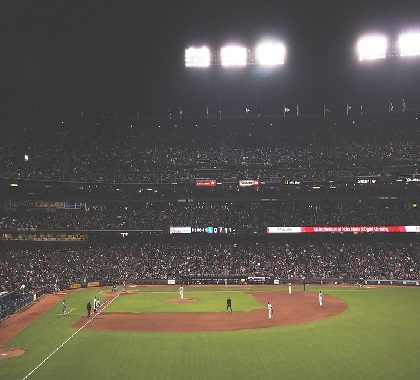Fayetteville, North Carolina and Cumberland County elected officials are finalizing negotiations over sharing the costs of subsidies for a new minor-league baseball stadium in the city.
At a September 28 Fayetteville City Council Baseball Committee meeting, City Councilman Mitch Colvin (District 3) said negotiations between the city and county over the subsidies were “90 percent there.”
In 2016, city and county elected officials pledged to give the stadium’s owners $3.3 million in taxpayer money toward construction of a new minor-league baseball stadium.
Baseballs, Not School Halls
Julie Tisdale, a policy analyst with the John Locke Foundation, says taxpayer money spent on stadiums precludes funding for other priorities, such as education.
“They took money away from schools to put in this ball park,” Tisdale said. “In order to do this, the school board had to approve it, and the school board approved it!”
The county’s government schools need money for repairs and classroom materials, Tisdale says.
“I looked into just how bad this move was for Cumberland County Schools,” Tisdale said. “I found out that the latest data available on per student expenditures showed Cumberland schools [were] ranked 92nd out of 115 districts. In terms of local dollars provided by the county, the district ranked 71st in the state.
“More data, using the Statewide Facility Needs Survey, showed that Cumberland County had a need for more than $142 million in school renovation, addition, and equipment,” Tisdale said. “This is a huge problem because the majority of these items are paid for through local dollars.”
‘Sports Stadiums Are Bad Investments’
Marc Poitras, an associate professor of economics at the University of Dayton, says economists “overwhelmingly” agree stadium subsidies are wasteful.
“The economics literature has shown overwhelmingly that subsidies for sports stadiums are bad investments,” Poitras said.
“The building of the baseball stadium is anticipated to generate considerable new spending and a resulting economic impact on an annual basis amount [sic] to $7.2 million in annual economic output,” the City of Fayetteville’s website states. Poitras says the real number will fall short of that prediction.
“Consulting reports are notorious for overestimating the economic benefits of stadiums, and the $7.2 million estimate for economic activity does seem hard to believe,” Poitras said. “Assuming 3,000 fans per game, and assuming—generously—that fans spend an average of $25 on everything, including parking, tickets, drinks, etc., implies total spending of $5.25 million.”
Shopping for Corporate Welfare
Team owners and sports leagues have enough money to build new stadiums without taxpayer dollars, Poitras says, but they hold taxpayers and fans hostage because it pays.
“The sports leagues have more than enough revenue to pay for stadiums themselves, and do not need to rely on taxpayer subsidies,” Poitras said. “The leagues are effectively playing off one city against another in order to extract subsidies.”



